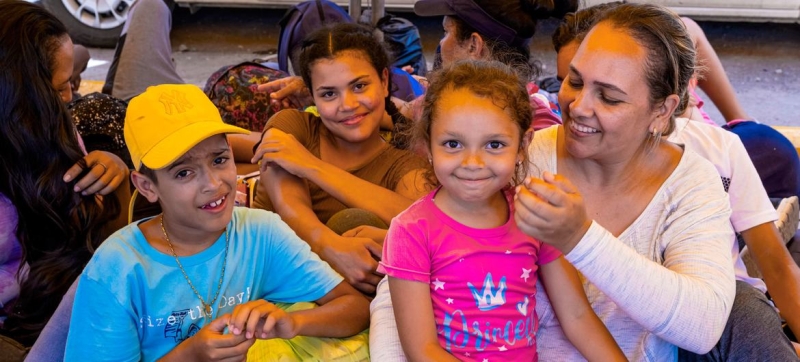
A family of Venezuelan migrants in Guatemala. UN calls for greater support for families in all their diversity Human Rights
Every adult has the right to found a family, choose a partner, and be legally recognized, regardless of sexual orientation or gender identity. This was stated by Deputy High Commissioner for Human Rights Nada Al-Nashif at the 57th session of the Human Rights Council on Wednesday.
Speaking at a panel discussion on fulfilling government commitments to the role of the family, Al-Nashif stressed the importance of ensuring that families serve as safe spaces where the rights of all members are respected.
She noted the diversity of family relationships around the world, including nuclear families, extended families, single-parent households and childless couples.
“Families, at their best, are our first introduction to love, care, support and empowerment,” Al-Nashif said. She stressed that international human rights law recognizes the family as the “natural and fundamental unit of society” and that its role in supporting both individual members and society as a whole is undeniable.
Human Rights in the Family
The UN representative called for all families, regardless of their structure, to fully respect human rights. This includes freedom from discrimination and violence, as well as protecting the interests of children and ensuring equal rights for women.
Al-Nashif stressed that families should not be forcibly separated due to factors such as poverty, disability or migration status.
According to the Deputy High Commissioner, women, children, people with disabilities, older persons and members of the LGBTIQ+ community should enjoy their rights within the family without facing discrimination.
She pointed to a World Bank report that 85 countries still have discriminatory provisions against women in marriage, divorce, property and inheritance laws. The UN representative called for the eradication of this practice.
Ensuring safety and autonomy
Al-Nashif also noted that families must be free from violence, abuse, neglect and exploitation. She called on States to fulfil their obligations to prevent domestic violence and provide the necessary social protection, adding that dignity and autonomy must be respected, especially for children, people with disabilities and older persons.
“I call on States to find ways and means to support and strengthen the resilience of families and their members in all their richness and diversity,” the Deputy High Commissioner concluded.
